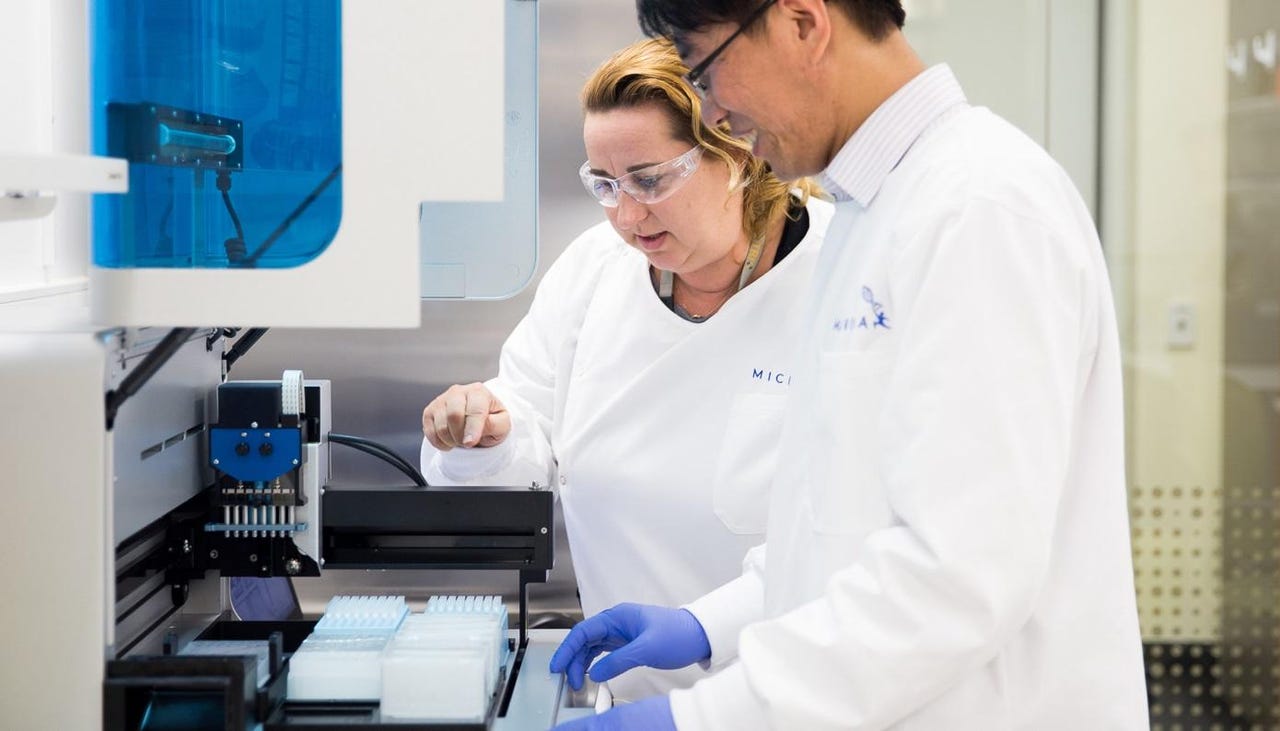Aussie biotech Microba using AI to research gut microbiome


Australian gut health startup Microba has been using the Google Cloud Platform (GCP) to gain a deeper understanding of customers' gut microbiome.
According to Microba, the gut microbiome plays a central role in health and disease, with the startup aiming to contribute to the development of new pathology services, therapeutics, and diagnostics based on the microbiome.
Work performed within Microba is based on research developed by co-founders Professor Gene Tyson and Professor Phillip Hugenholtz over the past 20 years.
See also: Artificial intelligence: Trends, obstacles, and potential wins (Tech Pro Research)
The Brisbane-based company wanted to make research-quality microbiome analysis more broadly available to give everyone the opportunity to gain deep insight into their gut microbiome and improve their health and wellbeing.
Microba said its work has been made possible due to advancements in computing power.
Using de-identified data from customers who opt-in to Microba's Insight program, the company is building what it has touted as the world's largest database of metagenomic gut microbiome samples and associated health and lifestyle data.
As the database grows, the machine learning and artificial intelligence (AI) of the GCP will be used to identify associations between specific microorganisms and genes, which it said can accurately predict different disease states.
Since Microba launched Microba Insight in June 2018, over 10,000 samples have been pushed through its Metagenomic Analysis Platform (MAP) bioinformatics pipeline.
Speaking at the Google Cloud Summit in Sydney last week, Microba CEO Blake Wills said his company has achieved significant gains since working with the GCP.
"The use of cloud storage for production pipelines and data storage is recognised as an important business requirement to keep cloud storage costs down for a small startup that relies heavily on using 100TBs of data," Wills said.
See also: Google Cloud Platform: A cheat sheet (TechRepublic)
Working with Google Cloud and partner Max Kelsen -- a fellow Queensland-based analytics company using AI to predict the effectiveness of cancer treatments -- Microba said it has reduced the time required for sequence run processing from 48 hours to under 12 hours.
"Microba has enabled thousands of customers in Australia to grasp a deeper understanding of their gut microbiome and provided diet-based interventions to make a positive change since launch," Wills said. "Microba has also assisted practitioners to use new insights and world-leading research to assist in making informed decisions for patient health."
"Providing computing at the scale and elasticity required by Microba was an exciting challenge for Max Kelsen. By leveraging Google Cloud Platform's particular capabilities, including specific instance sizing and high throughput networking, and Kubernetes, we achieved a state that ticks the technical requirements at the same time as delivering significant cost reductions," Max Kelsen CEO and co-founder Nicholas Therkelsen-Terry added.
RELATED COVERAGE
- CSIRO using serverless compute to analyse the human genome
- Analysing your sweat could be the next big thing in health tech
- Researchers find crowdsourcing, AI go together in battle vs. lung cancer
- QUT researchers develop AI to improve accuracy around eye-testing
- Pharma companies are counting on cloud computing and AI to make drug development faster and cheaper
- IBM gives cancer-killing drug AI project to the open source community
- The role of data science and technology in mental health treatment (TechRepublic)
- How AI and next-generation genomic sequencing is helping cancer patients (TechRepublic)